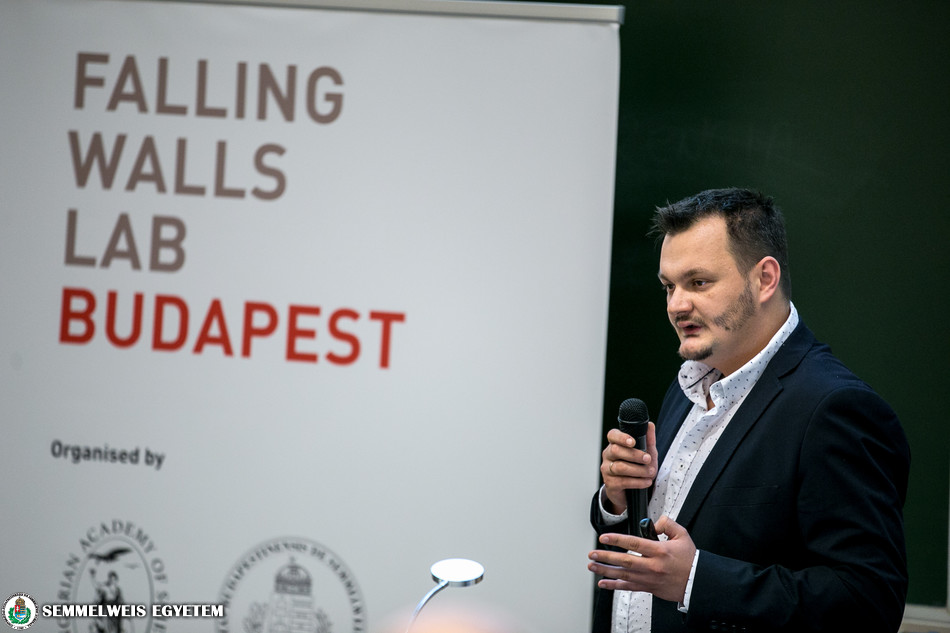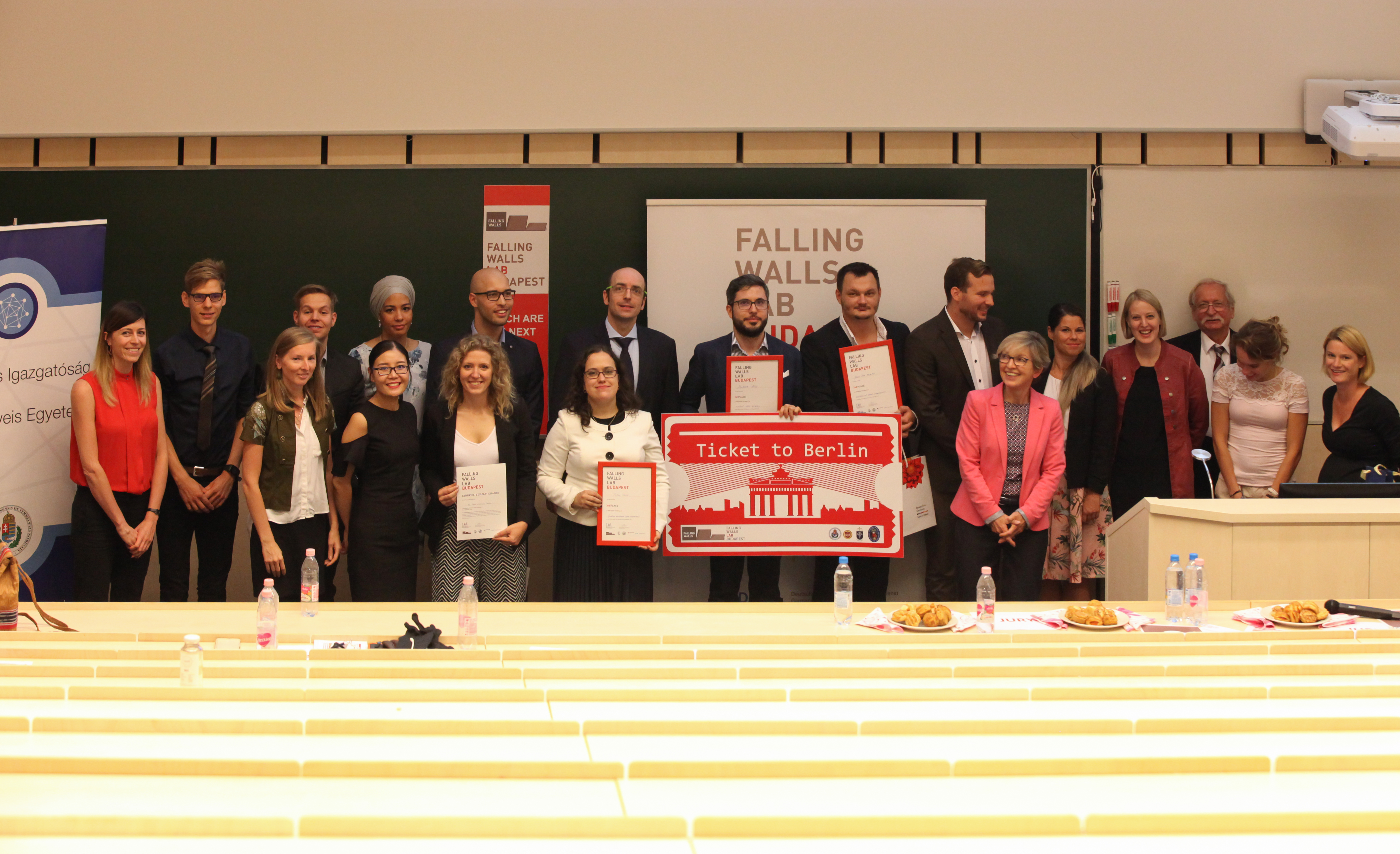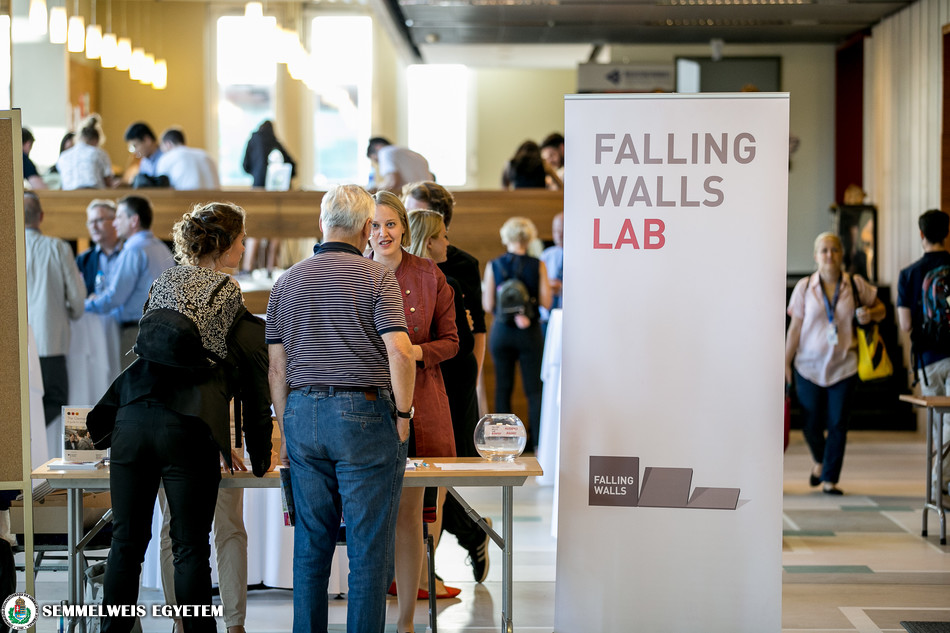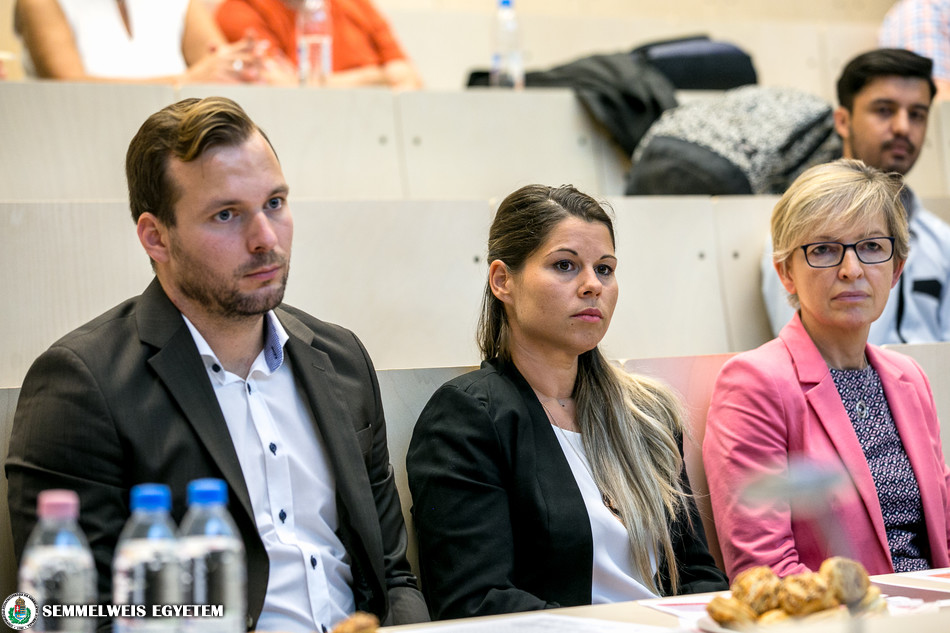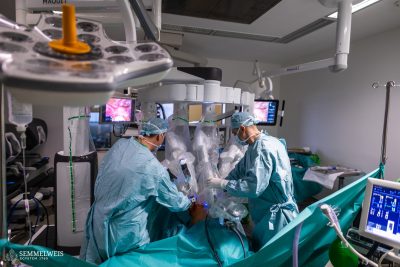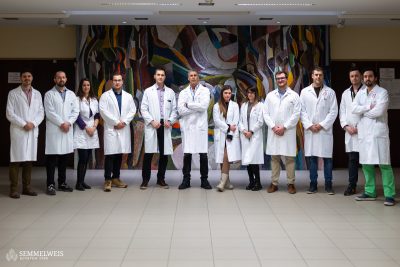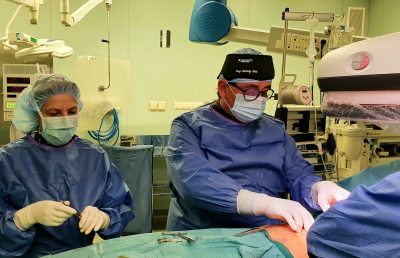Semmelweis University was asked by the Hungarian Academy of Sciences (MTA) to hold the 2019 national leg of the Budapesti Falling Walls Lab competition, as last year’s contest was won by Károly Havlik, a student of the university. In the English-language scientific and innovation competition, students, academics, entrepreneurs and other professionals have three minutes to showcase their research, business models or innovative projects and ideas before a jury comprised of their peers and select professionals. The best presenters get a chance to take part in the global finale of the competition to be held in Berlin this November.
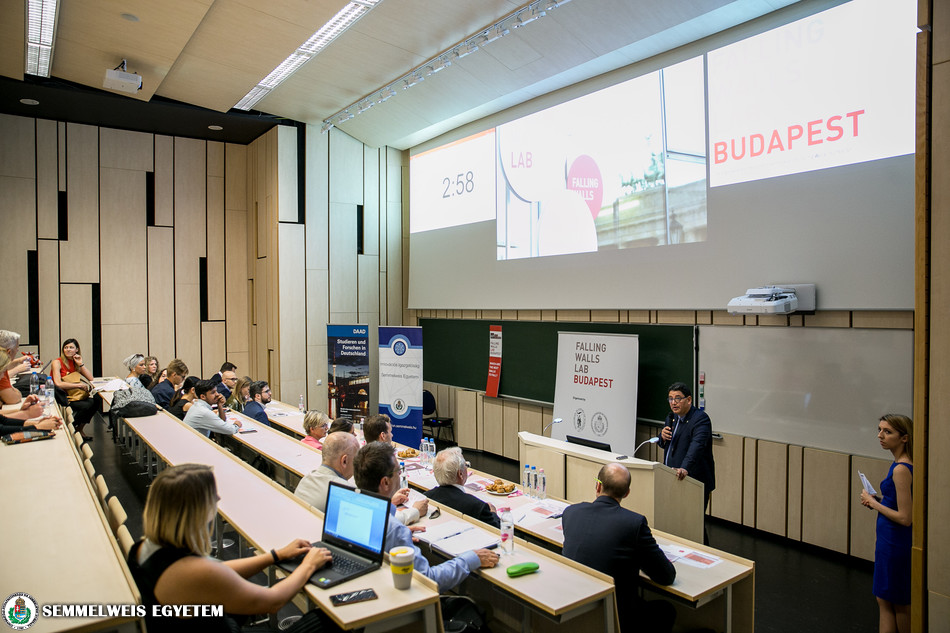 In his welcome remarks opening the competition, rector Dr. Béla Merkely said it is very important for Semmelweis University both at home and abroad to be an active player in academic life, where new achievements, new procedures, new patents are created. Semmelweis University would like to be a strong member of the Hungarian innovation ecosystem, therefore it is fostering all multidisciplinary initiatives that build the broader health and life sciences field. He added that the Falling Walls Lab event is a very good opportunity for contestants to introduce their innovations in an international environment. He pointed out that it is the goal of the 250-year-old university to be among the 100 best higher education institutions in the world and one of the top European health universities by 2030. In this context, the current event fits perfectly with last week’s Summer University and also leads into the Semmelweis Symposium that will be held around the university’s birthday on November 5. The rector also noted that in order to develop an innovation approach events like this need to start at the student level, and he called attention to the Researchers Night that will be organized on September 27 and where the university is also one of the organizers.
In his welcome remarks opening the competition, rector Dr. Béla Merkely said it is very important for Semmelweis University both at home and abroad to be an active player in academic life, where new achievements, new procedures, new patents are created. Semmelweis University would like to be a strong member of the Hungarian innovation ecosystem, therefore it is fostering all multidisciplinary initiatives that build the broader health and life sciences field. He added that the Falling Walls Lab event is a very good opportunity for contestants to introduce their innovations in an international environment. He pointed out that it is the goal of the 250-year-old university to be among the 100 best higher education institutions in the world and one of the top European health universities by 2030. In this context, the current event fits perfectly with last week’s Summer University and also leads into the Semmelweis Symposium that will be held around the university’s birthday on November 5. The rector also noted that in order to develop an innovation approach events like this need to start at the student level, and he called attention to the Researchers Night that will be organized on September 27 and where the university is also one of the organizers.
The best 15 project ideas submitted to the competition were chosen to give three-minute pitches to present their innovative solutions in front of the jury. This year’s jury members were: Dr. Pál Maurovich-Horvat, assistant professor, director of Semmelweis University’s newly formed Department of Medical Imaging; Dr. Imre Bojtár, professor at the Department of Structural Mechanics of the Budapest University of Technology and Economics; Ádám Horváth, senior investment manager at Hiventures; Katja Dormann, head of the cultural department at the German Embassy in Budapest; and Dóra Marosvölgyi, program manager at EIT Health.
The winner of the competition was Dr. Norbert Kiss, a resident dermatologist at Semmelweis University’s Department of Dermatology, Venereology and Dermatooncology, and a PhD student, who presented newly developed technique that is capable of imaging that acts as a virtual skin biopsy. Skin biopsies are one of the most important diagnostic methods in dermatology, but they are an invasive procedure where the result is only available after several weeks. With this new technique, it is possible to get an immediate diagnosis, which reduces the burden on the patient and an objective control examination of skin diseases is possible. The winning project is a collaboration of the Department of Dermatology, Venereology and Dermatooncology and the Wigner Research Center for Physics.
The special award of venture capital firm Hiventures went to a project developed by Dr. János Imre Barabás of the university’s Városmajor Heart and Vascular Center, which reduces the risk of complications after artificial heart implants by using 3D modeling simulations to determine the optimal position of the implant. The audience award was given to Emese Pancsa, a student at the Budapest Metropolitan University for her Compocity smart composting bin project.
The best presenters of the competition will get the opportunity to travel to Berlin for the Falling Walls Conference, with the Falling Walls Lab Foundation and the Hungarian organizers covering the cost. The MTA will also provide HUF 250,000 in aid for lodging and travel costs to Berlin. The competition was organized jointly under the aegis of the Falling Walls Lab Foundation by Semmelweis University, the MTA and DAAD Hungary.
The competition was for students, entrepreneurs, early-career researchers and academics of all disciplines, who are currently in or have in the near past completed their undergraduate, master’s PhD studies.
Tamás Deme
Photo: Attila Kovács – Semmelweis University; Falling Walls Lab

